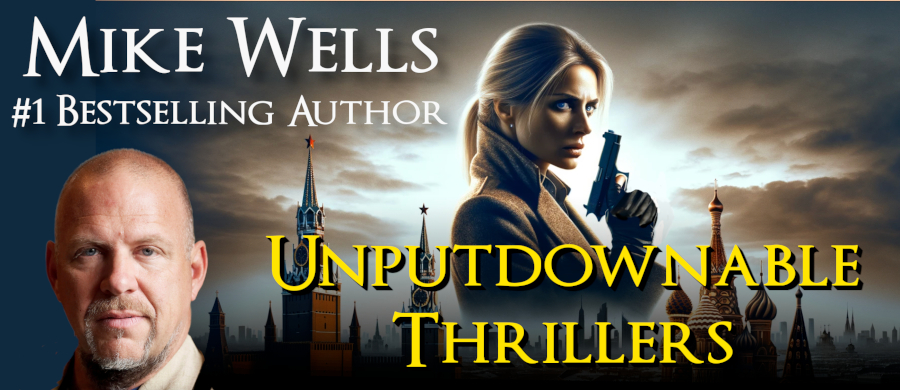When I first started to take my fiction writing career seriously, I decided to try my hand at screenwriting. I’ve always loved movies just as much as books. Plus, I figured writing screenplays might be easier than writing novels, as you don’t have to put in a lot of fancy description in film scripts (In hindsight I don’t think it’s any easier, but that’s what I thought then)
I was lucky with my first screenplay. The working title was Art & Soul. It was a tight psychological thriller about a romance novelist who eavesdropped on private cellphone conversations to get his story ideas, and who falls in love with one of the women he’s been spying on. I pitched it over the phone directly to producers. I soon had one interested, an indie film producer who had won the prestigious Palm d'Or prize at the Cannes Film Festival a few years before.
“Mike, you’re a fantastic writer,” he told me with great sincerity. “You should move to California, where the action is—you’ll do very well out here.”
I packed up and headed West, giddy about my seemingly fast-track Hollywood career.
The man was a seasoned producer, in his 60's, and planned to finance the movie himself. He bought a one year option on my screenplay, meaning that he had a year to pay me the full price for it. He planned on doing that as soon as I'd made all the “minor” changes he wanted.
A soon as I arrived in LA, he took me under his wing. “Mike,” he said, putting his tanned hand on my shoulder, “before we start working together, there's one thing you should know about Hollywood. Out here, we all practice The Golden Rule.”
“The Golden Rule?”
He grinned. “He who has the gold, rules.”
We began “polishing” the script. I worked long, long hours, with me doing revision after revision, making small changes that he wanted. He'd started out as a screenwriter himself, and he taught me a lot of subtle tricks that greatly improved the screenplay, made it more gripping and engaging. Some of the changes he wanted me didn't feel quite right. But I remembered The Golden Rule, and I ended up making all the changes he wanted anyway.
Then, when I thought we were almost finished with it, he said, “I think Melina (the young woman my hero falls for) should be a long-legged, fiery redhead.”
I wasn’t sure about this. “But Melina isn’t a ‘fiery’ character. She’s just the opposite—she’s cool and collected.”
“Trust me, Mike.” There was deadpan look in his eye. Don't forget The Golden Rule, it seemed to say.
I made the change. But when I reread the script, I felt the story no longer worked. With Melina’s new personality, her actions were no longer believable. I mustered up my courage and decided that at the next script meeting I would tell the producer this in no uncertain terms, Golden Rule or not.
Well, he brought his new girlfriend along to the meeting. She was about 1/3 of his age. It happened that she was a long-legged redhead with a fiery personality. Coincidentally, she had recently had started taking acting lessons.
The producer began asking for even more changes, telling me to crank up the “voyeurism.” He wanted new, more titillating scenes added, scenes that were beginning to turn the film into—in Hollywood parlance—a schlocky B movie, the type that would bypass theaters altogether and be released straight to cable TV.
“It may be a little schlocky,” he admitted, “but schlock sells, Mike. This film will be profitable right out of the gate.” He gave me a winning Hollywood smile, his bleached teeth nearly blinding me. “You can write your dream script later.”
I soon lost all my enthusiasm for the project. I vividly remember staring at the computer screen one day, reading one of the seedy scenes I’d just written, and thinking I can’t do this anymore. I felt like I was turning my own well-raised, cultured daughter into a cheap tart.
I called the producer and told him I was quitting.
I left the Great State of California. I began working my first novel.
Believe it or not, I don't have any hard feelings about this experience—I pretty much knew how things would be in Hollywood. Today—20 years later—readers often tell me that my novels have a tight, cinematic feel. I have no doubt that this is a key element of my “unputdownable” style, and results from the intense training I underwent working with on that first screenplay.
Still, I was disappointed that Art & Soul was never made into a movie.
Maybe one day I will go back out to Hollywood and give screenwriting another try.
But not until I have accumulated enough gold to make the rules.










.jpg)
